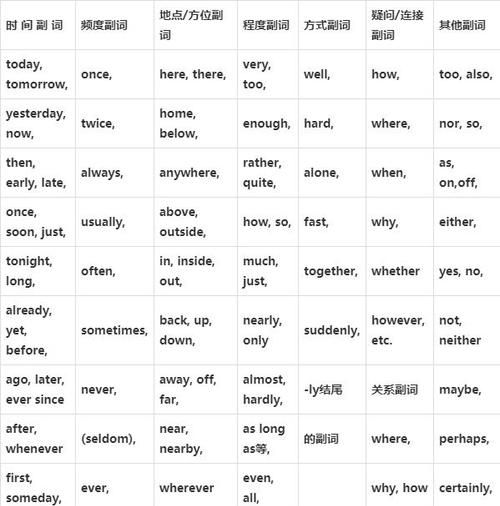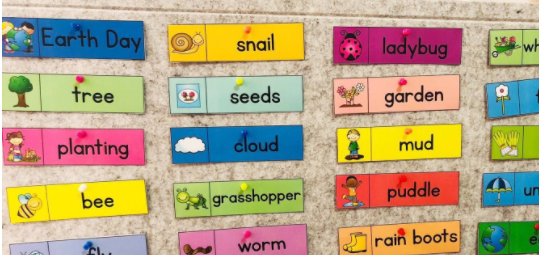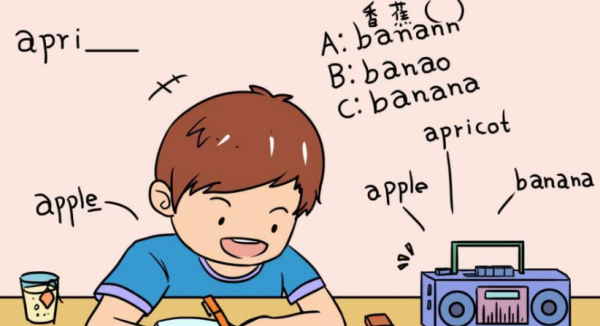本文目录
英语副词的用法总结
英语副词用法大全
副词属于八大词类之一,用来修饰动词。它们可以描述某事完成的方式、时间、地点以及频率。下面关于五种副词的介绍。

五种类型的副词
1.Adverbs of Manner
方式副词
方式副词能够表达出某人完成某事的方式,它最常与行为动词搭配使用。方式副词包括:slowly(慢慢地)、fast(迅速地)、carefully(小心地)、carelessly(粗心地)、effortlessly(不费力地)、urgently(急切地)。
方式副词可以放在句末,或者直接放在动词后。
Jack drives very carefully.
杰克开车非常小心。
He won the tennis match effortlessly.
他毫不费力地就赢了网球比赛。
She slowly opened the present.
她慢慢打开了礼物。
2.Adverbs of Time and Frequency
时间与频率副词
时间副词能够表达出某事发生的时间。它可以表达出一个具体的时间,例如两天、昨天、三个星期前等。虽然时间副词有时引导一个句子,但它常常放在句末。
We'll let you know our decision next week.
下周我们会通知你我们的决定。
I flew to Dallas three weeks ago.
三个星期前我飞去了达拉斯。
Yesterday, I received a letter from my friend in Belfast.
昨天,我收到一位贝尔法斯特的朋友的信。
除了表达某事发生的频率之外,频率副词与一般副词相似。频率副词放在主动词前面,放在be动词后面。下面是一份常见的频率副词列表,使用频率由高到低排列。
Always
总是
almost always
几乎总是
usually
经常
often
经常
sometimes
有时
occasionally
偶尔
seldom
很少地
rarely
很少地
almost never
几乎从不
never
从不
He seldom takes a vacation.
他的假期很少。
Jennifer occasionally goes to the movies.
詹妮弗偶尔去看看电影。
Tom is never late for work.
汤姆上班从不迟到。
3.Adverbs of Degree
程度副词
程度副词通常表示某事完成的程度。它们通常位于句末。
They like playing golf a lot.
他们很喜欢打高尔夫。
She decided that she doesn't enjoy watching TV at all.
她确定自己一点都不喜欢看电视。
She nearly flew to Boston, but decided not to go in the end.
她差点就飞去波士顿了,但最后还是觉得不去了。
4.Adverbs of Place
地点副词
地点副词告诉我们某事发生的地点。它们包括nowhere(任何地方都不) 、anywhere(任何地方)、outside(外面)、everywhere(到处)。
Tom will go anywhere with his dog.
汤姆去哪都带着他的狗。
You'll find that there is nowhere like home.
你会发现,再没有像家一样的地方了。
She found the box outside.
她在外面发现了这个箱子。
Adverb Formation
副词构造
1. 副词通常是由形容词后面加上-ly构成。
例如:quiet – quietly(安静地)、careful – carefully(小心地) 、careless – carelessly(粗心地)。
2.以-le结尾的形容词变为以-ly结尾。
例如:possible – possibly(可能地)、probable – probably(很可能地)、incredible – incredibly(难以置信地)。
3.以-y结尾的`形容词改为以-ily结尾。
例如:lucky – luckily(幸运地)、happy – happily(快乐地)、angry – angrily(愤怒地)。
4.以-ic结尾的形容词改为以-ically结尾。
例如:basic – basically(基本地)、ironic – ironically(讽刺地)scientific - scientifically (科学地)。
一些形容词的变化形式是不规则的。常见的不规则副词有:good – well(好地)、hard – hard(辛苦地)、fast –fast(迅速地)
Adverb Sentence Placement
副词在句中的位置
1.Adverbs of Manner: Adverbs of manner are placed after the verb or entire expression (at the end of the sentence).
方式副词:方式副词位于动词后面,或整个表达后面(句末)。
Their teacher speaks quickly.
他们老师的语速很快。
2.Adverbs of Time: Adverbs of time are placed after the verb or entire expression (at the end of the sentence).
时间副词:时间副词位于动词后或整个表达后面(句末)。
She visited her friends last year.
她去年去拜访了朋友。
3.Adverbs of Frequency: Adverbs of frequency are placed before the main verb (not the auxiliary verb).
频率副词:频率副词位于主要动词(而非助动词)前面。
He often goes to bed late. Do you sometimes get up early?
他经常晚睡。你有时候会早起吗?
4.Adverbs of Degree: Adverbs of degree are placed after the verb or entire expression (at the end of the sentence).
程度副词:程度副词位于动词后面或整个表达后面(句末)。
She'll attend the meeting as well.
她也出席了这次会议。
5.Adverbs of place: Adverbs of place are generally placed at the end of a sentence.
地点副词:地点副词一般位于句末。
She walked out of the room to nowhere.
她走出了房间。
Important Exceptions to Adverb Placement
副词位置的特殊情况
Some adverbs are placed at the beginning of a sentence to provide more emphasis.
一些副词位于句首,来进行强调。
For example: Now you tell me you can't come!
例如:现在你居然告诉我你不能来!
Adverbs of frequency are placed after the verb 'to be' when used as the main verb of the sentence.
当be动词作为一个句子的主要动词时,频率副词位于be动词之后。
Jack is often late for work.
杰克上班经常迟到。
Some adverbs of frequency (sometimes, usually, normally) are also placed at the beginning of the sentence for emphasis.
一些频率副词(有时、经常、通常)也会位于句首,以进行强调。
Sometimes I visit my friends in London.
我有时候会去拜访在伦敦的朋友。
;初中英语所有副词归纳
初中英语有不少副词知识点,想要学好副词需要做好知识点归纳。以下是我分享给大家的初中英语常见的副词,希望可以帮到你!
初中英语常见的副词
1.一般副词主要分为以下几种:
①.时间副词, 如: often, always, early, now
②.地点副词, 如: here, there, above, outside
③.方式副词, 如: hard, well, badly, fast, slowly
④.程度副词, 如: very, quite, much, still, almost
2.疑问副词(放在特殊疑问句的句首), 如: how, when, where, why
3.关系副词(放在定语从句句首), 如: when, where, why
4.连接副词(放在名词从句句首), 如: how, when, where, why, whether
一、副词在句中的作用: 副词修饰动词, 形容词, 名词, 副词或全句, 在句中的作用如下
1.作状语:
You should always review your lessons.
He works hard. 他工作努力。
2.作表语: The class is over.
3.作定语: 副词作定语时置于被修饰词之后
The comrades here give us a lot of help.
4.作补语(包括宾语补足语和主语补足语):
I found all the lights on when I got home last night.
二、副 词 的 比 较 等 级:
副词和形容词一样,也有它的比较级和最高级形式,并且变化规则也是一样的。
单音节副词的比较级是在副词后面加上 -er 构成的,最高级是在副词后面加上 -est 构成的。例如:near nearer nearest
多音节副词(多以 -ly 结尾)的比较级是在副词的前面加上 -more 构成的。 最高级是在副词前面加上 -most 构成的.例如;warmly more warmly most warmly
有些副词的比较级和最高级形式是不规则的:
well-better - best little - less - least
much- more - most badly - worse - worst
far-farther(further)-farthest(furthest)
副词的比较级和最高级用法同形容词的比较级用法基本一样,两者比较用比较级,三者或以上用最高级,但是副词最高级形式句中 the 可以省略。例如:
Lucy gets up earlier than Lili. 露西比丽丽起床早。
He runs fastest in our class. 他在我们班跑地最快。
当然,形容词比较等级的各个特殊用法,也同样适用于副词。比如“the + 比较级……,the + 比较级……”,表示“越……,越……”:He was too tired that he ran more and more slowly.他太累了以至于跑的越来越慢。
常见考法
对于副词的考查,多以单选或词语运用的形式考查学生在具体语境中灵活运用副词的能力,尤其是在各种比较句型中灵活运用副词。例如:
He walked (quiet) into the classroom.
解析:本题考查学生是否能熟练分辨形容词和副词的用法。“轻轻地走进”,副词修饰动词,所以quiet变为副词quietly,.我们要牢记“动+副”这种结构。
答案:quietly
误区提醒
象friendly , lovely 虽然以 ly 结尾,但实则是形容词,She is friendly to me (她对我很友好。)可千万不要误认为是副词哟!. 另外,early的比较等级为规则变化, early -earlier -earliest,要记住啊!
例题:My mother often gets up (早)than me.
解析:很明显是两人对比,所以应用比较级,early 的比较等级为规则变化,early -earlier 。
答案:earlier
初中英语副词的分类
1、 时间和频度副词:
now,then,often,always,usually,early,today,lately,next,last,already,generally,frequently, seldom,ever,never,yet,soon,too, immediately, hardly,finally,shortly, before, ago,sometimes, yesterday.
2、 地点副词:
here, there, everywhere, anywhere, in, out, inside, outside, above, below, down, back, forward, home, upstairs, downstairs, across, along, round , around, near, off, past, up, away, on.
3、方式副词:
carefully, properly, anxiously, suddenly, normally, fast, well, calmly, politely, proudly, softly, warmly
4、 程度副词,放在被修饰词之前:
much,little, very,rather,so,too,still, quite, perfectly, enough, extremely, entirely,almost, slightly.
5、 疑问副词,一般放在句首:
how, when, where, why.
6、关系副词,一般放在句首:
when, where, why.
7、连接副词:
how, when, where, why, whether.
初中也要重点副词注释
1.as…as…常构成一些词组:as soon as…(一旦…就…), as well as…(同样), as+形容词/副词+as possible(尽可能……地)。如:Please ring me up as soon as you get to Beijing.(请你一到北京就给我写信。)/ Miss Gao hurried to the school gate as quickly as possible.(高小姐尽快地赶到了校门口。)
[注释] "as long / much as + 名词"可以表示"长达/多达…"的含义。如:The house costs as much as five hundred thousand yuan.(那幢房子花费高达50万元。)/ They stayed in the cave(山洞)as long as two weeks.(他们呆在山洞里长达两周。)
2. later、after、ago、before的用法:①"一段时间+later/ago"分别表示"(多久)以后/以前",主要用于过去时态。②"after/before+某个时刻"分别表示"在某时刻之后/之前",此时两个词是介词。③ago与before:ago只能用于过去时,before用于完成时。如:He had an accident a week ago.(一周前出了一个事故)/ Some years later, the boy became a very famous singer.(数年后这个男孩成了著名的歌唱家)/ Have you been there before?(你从前到过那儿吗?)/ After a few years he gave up smoking.(过了几年他戒了烟。)
3.above、below、over、under的用法:在上下方用above和below,在高低处用over和under.如:The stars are high above in the sky.(星星高挂在空中) / A plane flew over quickly.(一架飞机从头顶飞过。)
当above、below、over、under是介词性质时,意义相似。
4. too、also、either、nor的用法:too("也")用于肯定句和疑问句的末尾,且用逗号隔开;also("也")用于肯定句句子谓语动词之前;either("也")用于否定句末尾,也用逗号隔开;nor("也不")用于倒装句句首;如:Are you American,too?(你也是美国人吗?)/ He is not happy and I am not happy, either.(他不愉快,我也不。) / He didn't watch the football game. Nor did I.(他没有看足球赛,我也没有。)/ You can also find the market is very good.(你还可以发觉那个市场很好。)
5. enough、too、so、very、quite、very much的用法: enough ("足够,十分")放在形容词或副词之后;too("太")、very("非常")、quite("相当")、so("如此地")等放在形容词或副词之前,very much("非常")放在动词之后。如:It's too/so/very/quite expensive.(它太贵/那么贵/非常贵/相当贵。)/ I don't like sweets very much.(我不很喜欢糖果)
[注意] very与 much的区别:very修饰形容词、副词的原级和现在分词形容词,much修饰形容词和副词的比较级;much还可以修饰疑问句和否定句中的动词,very不可以。如:He is very stupid.(他很笨)/ The film was very moving and everyone swept.(电影非常动人,大家都哭了)/ You must work much harder or you will fail to enter the good school.(你得学习更努力,不然你考不进那所好学校)/ I don't like him much.(我不太喜欢他)
6. sometimes、 sometime、 some times 、some time的用法:sometimes(有时)用于一般现在时、 sometime(在将来某时)用于将来时、 some times(数次)表示次数、some time(一些时间)表示一段时间。如:Sometimes they go hiking in the mountains.(他们有时徒步旅行到山里去)/ I will stay here some time.(我会在这儿呆些时候的。)/ I will meet your father sometime.(我什么时候要见见你的父亲。)
7. how、what用于感叹句的用法:对句子中的形容词或副词感叹时用how,对人或事物(可能含有形容词作修饰语)进行感叹用what. 如:What a fine day (it is) today!(今天天气真好!) / How difficult (the problem is)!((问题)真难呀!)
8.already、yet的用法:在完成时中,already一般用于肯定句,yet一般用于否定句和疑问句。如:Have you done it already?(你已经做好了?) / I have not had my breakfast yet.(我还没有吃早饭呢。)
9. hard与hardly的用法:hard作为副词意思是:"努力地,猛烈地",hardly是否定词,意思是:"几乎不",一般与情态动词can/could连用。如:They study English very hard.(他们英语学得很刻苦)/ You can hardly see a person spit in a public place.(在公共场所你几乎看不到一个人随地吐痰)
10. like...very much、like...better(=prefer)、like...best的用法:三个短语分别表示"非常喜欢"、"更喜欢"、"最喜欢"。如:I like baseball very much.(我非常喜欢棒球)/ Do you like butter better than cheese?( / They like hamburgers best.
11."quite/what+a+形容词+名词"的用法:记住:①quite/such/what...+a+形容词+名词;②too/so/how+形容词+a+名词;③rather+a+形容词+名词 = a+ rather+形容词+名词。如:I have never seen such a strange guy(家伙).(我从未见过这样奇怪的家伙) / It is quite a nice day for a walk.(这真是散步的好日子)
中考重点副词注释
1.as…as…常构成一些词组:as soon as…(一旦…就…), as well as…(同样), as+形容词/副词+as possible(尽可能……地)。如:Please ring me up as soon as you get to Beijing.(请你一到北京就给我写信。)/ Miss Gao hurried to the school gate as quickly as possible.(高小姐尽快地赶到了校门口。)
[注释] "as long / much as + 名词"可以表示"长达/多达…"的含义。如:The house costs as much as five hundred thousand yuan.(那幢房子花费高达50万元。)/ They stayed in the cave(山洞)as long as two weeks.(他们呆在山洞里长达两周。)
2. later、after、ago、before的用法:①"一段时间+later/ago"分别表示"(多久)以后/以前",主要用于过去时态。②"after/before+某个时刻"分别表示"在某时刻之后/之前",此时两个词是介词。③ago与before:ago只能用于过去时,before用于完成时。如:He had an accident a week ago.(一周前出了一个事故)/ Some years later, the boy became a very famous singer.(数年后这个男孩成了著名的歌唱家)/ Have you been there before?(你从前到过那儿吗?)/ After a few years he gave up smoking.(过了几年他戒了烟。)
3.above、below、over、under的用法:在上下方用above和below,在高低处用over和under.如:The stars are high above in the sky.(星星高挂在空中) / A plane flew over quickly.(一架飞机从头顶飞过。)
当above、below、over、under是介词性质时,意义相似。
4. too、also、either、nor的用法:too("也")用于肯定句和疑问句的末尾,且用逗号隔开;also("也")用于肯定句句子谓语动词之前;either("也")用于否定句末尾,也用逗号隔开;nor("也不")用于倒装句句首;如:Are you American,too?(你也是美国人吗?)/ He is not happy and I am not happy, either.(他不愉快,我也不。) / He didn't watch the football game. Nor did I.(他没有看足球赛,我也没有。)/ You can also find the market is very good.(你还可以发觉那个市场很好。)
5. enough、too、so、very、quite、very much的用法: enough ("足够,十分")放在形容词或副词之后;too("太")、very("非常")、quite("相当")、so("如此地")等放在形容词或副词之前,very much("非常")放在动词之后。如:It's too/so/very/quite expensive.(它太贵/那么贵/非常贵/相当贵。)/ I don't like sweets very much.(我不很喜欢糖果)
[注意] very与 much的区别:very修饰形容词、副词的原级和现在分词形容词,much修饰形容词和副词的比较级;much还可以修饰疑问句和否定句中的动词,very不可以。如:He is very stupid.(他很笨)/ The film was very moving and everyone swept.(电影非常动人,大家都哭了)/ You must work much harder or you will fail to enter the good school.(你得学习更努力,不然你考不进那所好学校)/ I don't like him much.(我不太喜欢他)
6. sometimes、 sometime、 some times 、some time的用法:sometimes(有时)用于一般现在时、 sometime(在将来某时)用于将来时、 some times(数次)表示次数、some time(一些时间)表示一段时间。如:Sometimes they go hiking in the mountains.(他们有时徒步旅行到山里去)/ I will stay here some time.(我会在这儿呆些时候的。)/ I will meet your father sometime.(我什么时候要见见你的父亲。)
7. how、what用于感叹句的用法:对句子中的形容词或副词感叹时用how,对人或事物(可能含有形容词作修饰语)进行感叹用what. 如:What a fine day (it is) today!(今天天气真好!) / How difficult (the problem is)!((问题)真难呀!)
8.already、yet的用法:在完成时中,already一般用于肯定句,yet一般用于否定句和疑问句。如:Have you done it already?(你已经做好了?) / I have not had my breakfast yet.(我还没有吃早饭呢。)
9. hard与hardly的用法:hard作为副词意思是:"努力地,猛烈地",hardly是否定词,意思是:"几乎不",一般与情态动词can/could连用。如:They study English very hard.(他们英语学得很刻苦)/ You can hardly see a person spit in a public place.(在公共场所你几乎看不到一个人随地吐痰)
10. like...very much、like...better(=prefer)、like...best的用法:三个短语分别表示"非常喜欢"、"更喜欢"、"最喜欢"。如:I like baseball very much.(我非常喜欢棒球)/ Do you like butter better than cheese?( / They like hamburgers best.
11."quite/what+a+形容词+名词"的用法:记住:①quite/such/what...+a+形容词+名词;②too/so/how+形容词+a+名词;③rather+a+形容词+名词 = a+ rather+形容词+名词。如:I have never seen such a strange guy(家伙).(我从未见过这样奇怪的家伙) / It is quite a nice day for a walk.(这真是散步的好日子)
12. how 的几个短语:how often"多常,每隔多久",用于一般时态,对表示频度的词语进行提问; how soon"多久以后",用于将来时态; how long"多久",用于过去时、完成时或其他时态; how many times"多少次",用于过去时或完成时,对总计次数进行提问; how much"多么,多少",对程度进行提问,也可以对数量(不可数)或金钱进行提问。如:How long have you been like this?(你这样已经多久了?)/ How often does he wash his face?(他每隔多久洗一次脸?)
13. much、more与most的用法:这三个词除了是形容词作名词的修饰语之外,还是程度副词,much表示"很",修饰原级形/副,more表示"更"用来构成多音节形/副的比较级,most表示"最"用来构成多音节形/副的最高级。此外,much也可以修饰比较级形/副。如:This park is much more beautiful than that one.(这个公园比那个漂亮多了)/ It is the most instructive film I have ever seen.(这是我看过的最有教育意义的电影)
14. no more、no longer、not...any more、no...any longer的用法:表示时间,可以用no longer、not...ny more、no...any longer,而且no longer只能放在谓语动词之前;表示程度,可以用no more、not...any more.如:He no longer lived there.(他不再住在那里) / Tom wanted no more cakes.(他不想再要蛋糕) / He didn' t smoke any more/longer.(他不再抽烟)
15.被动语态中,方式副词一般放在be与谓语动词之间。如: The runner was badly hurt.(赛跑运动员受了重伤) / English is widely spoken in the world today.(如今世界上英语说得很广泛)
16.too...to...与so...that...的问题:副词too/so后面跟形容词或副词,to后面跟动词,that后面跟从句。Too...to... ("太.……以致不……")是否定的结构,用于简单句;so...that...("如此…以致…")是肯定结构,用于复合句。如:The child is too young to join the army.(这孩子年龄太小还不能参军)/ He is so strong that he can lift the heavy box.(他这么强壮,搬得动那个重箱子。)
17. 既是形容词也是副词的单词有:early, late, long, last, next, first, near, enough, much, all, hard, alone, fast, slow, high, low, straight等等。如:It was a long holiday.(那是个长假)/ He stayed there very long.(他在那儿呆了好久)/ Think hard then you will find a way.(好好想你就会找到办法)/ He is a very hard(难对付的) person.(他是个难玩的家伙)
18. farther与further的用法区别:表示地点、方向或距离时两个词同义,意思为"更远、较远",但是further还表示"更多、进一步、额外"等意思,此时不能换为farther. 如:They decided to go farther/further the next day.(他们决定第二天走得再远些)/ This problem will be further discussed.(这个问题还要进一步讨论)/ Every one of them had their further studies after they left college.(他们每个人大学毕业后继续进修)
19. rather与quite的用法区别:同very一样,两个词都表示形容词或副词的程度,quite表示"不到最高程度但是比预料的好",rather比quite更接近very的含义,含有令人惊讶的意思。见下图对"nice"程度的描绘:
not nice (fairly) nice quite nice rather nice very nice
如:It's quite a nice film.(这是部好片子)。(可能意味着不是一部最好的电影) / It's rather a nice film.(这是部很不错的电影。)(意味着比大多数电影都好)
[注意]注意quite与rather后面的次序词序。
20. maybe、possibly、perhaps的区别:maybe"可能、也许",比另外两个词更不正式、更随便、可能性不大;possibly"可能地、或者、也许",可能性较大,在否定句和疑问句中表示"无论如何";perhaps"可能",较为常用而且正式,可能性也不大。如:You could put it over there,maybe.(也许你可以把它放在那边) / I couldn't possibly have finished such a long book in such a short time.(我不可能在这么短的时间内完成这么长的一本书)/ I thought perhaps it was the letter you have been expecting.(我以为那也许就是你期盼的信件)
猜你喜欢:
1. 初中英语八种时态归纳复习要点
2. 初一上英语知识点总结
3. 高考英语语法知识总结形容词和副词
4. 初中英语动介短语
5. 初中英语动词短语练习题初中英语动词短语

英语常用50个副词
时间副词:常见的有now, then, soon, ago, recently, lately, later, before, early, today, tomorrow, yesterday, tonight, suddenly, immediately, still, already, just等。
地点副词:常见的有here, there, up, down, away, nearby, home, ahead, abroad, indoors, overseas, upstairs, downstairs等。
方式副词:表示行为方式的副词大多以-ly结尾,常见的有quietly, heavily, warmly, carefully, happily, politely, angrily等。
频度副词:常见的有always, usually, often, frequently, constantly, occasionally, sometimes, seldom, hardly, rarely, never等。

辅音
(注:多数辅音的读音与拼音差别不大,可以通过拼音来进行谐音;还有一部分辅音没有对应的拼音字体,这里我们主要是针对/θ ð ʃ ʒ/这四个辅音)其中,/θ/和/ð/这两个音标,它们并没有相近似的拼音来对应,主要是靠嘴形来记忆。
/θ/――上下牙齿咬着舌头尖,发“斯"的音;/ð/――舌头顶上牙堂发拼音z一声;/ʃ/――师;/ʒ/――牙齿闭合,舌头虚碰牙齿发拼音r一声。
英语副词的分类有哪八类
1、时间副词
now,then,soon,later,before,early,still,already,just
2、地点副词
here,there,up,down,away,nearby,ahead,abroad
3、方式副词表示行为方式的副词大多以-ly结尾
quietly,heavily,warmly,carefully,happily,politely,angrily
4、频度副词
always,usually,often,frequently,sometimes
5、程度副词
fairly,pretty,rather,quite,very,much,too,greatly,almost,nearly

6、焦点副词
alone,also,even,just,merely,exactly,too,aswell
7、连接副词这类副词有相当于并列连词
therefore,besides,otherwise
8、关系副词引导定语从句
when,where,why
9、疑问副词引出特殊疑问句
when,where,why,how
10、句子副词修饰整个句子
honestly,fortunately,luckily,unexpectedly,naturally
以上就是关于方式副词英语,英语副词的用法总结的全部内容,以及方式副词 的相关内容,希望能够帮到您。

